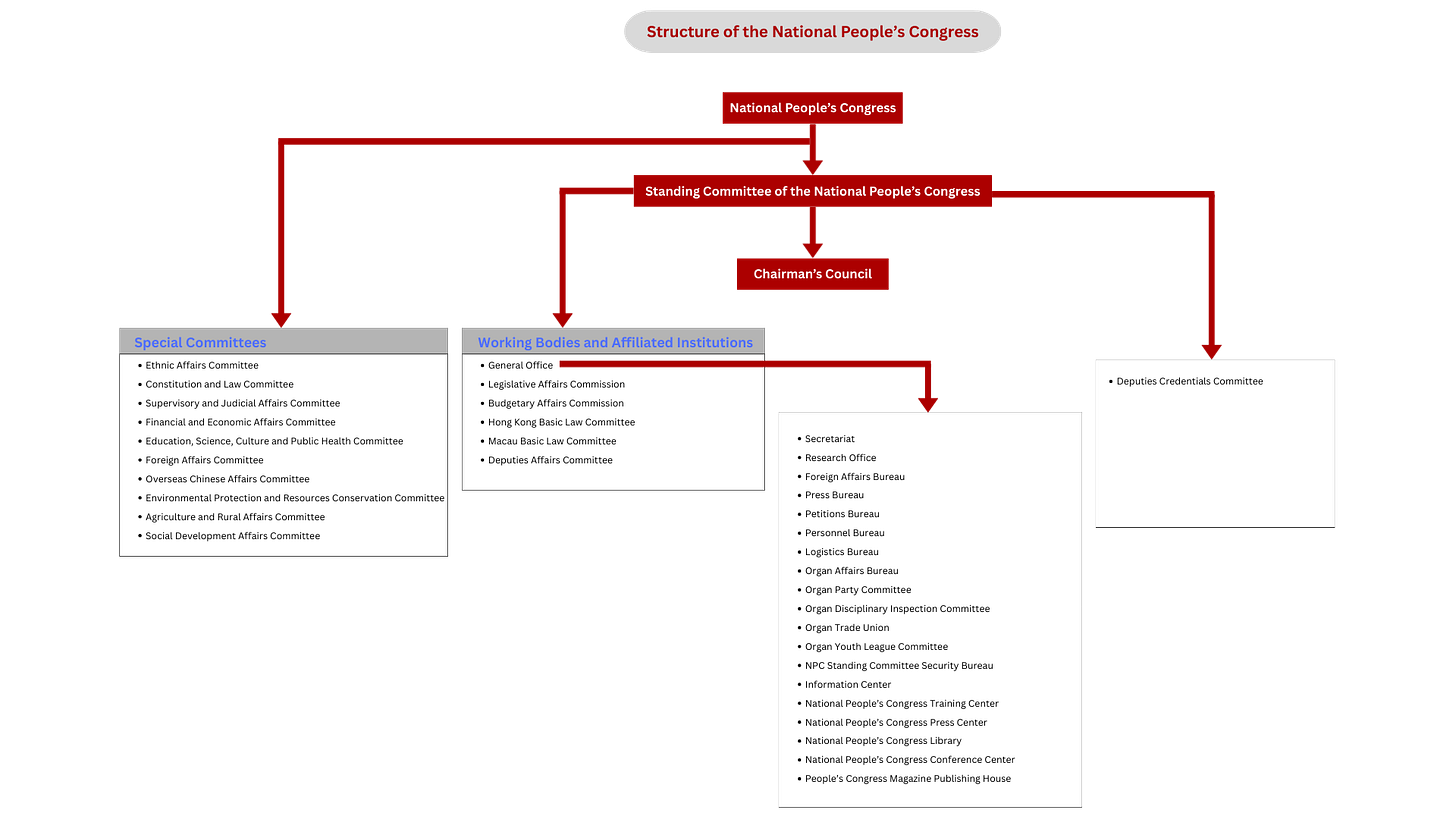Understanding the National People’s Congress
Making sense of China’s legislative system without the mystery
Inside the National People’s Congress
A clear look at how China’s top legislature is organized
The National People’s Congress (NPC) is China’s highest legislative body. It is often described as symbolic, but once you look at how it is structured, it resembles many legislative systems elsewhere. Below is a breakdown of its main branches and their functions.
The Top Level
National People’s Congress (NPC): The supreme body of state power. It passes laws, approves major policies, and elects state leaders such as the president, premier, and members of the State Council. It meets once a year in a session often called the “Two Sessions.”
Standing Committee of the NPC: A permanent body of about 170 members that works year-round. It drafts and revises laws, interprets statutes, supervises government organs, and handles foreign treaty ratification.
Chairman’s Council: The leadership team inside the Standing Committee. It includes the chairman, vice chairpersons, and secretary-general. It sets legisla…


